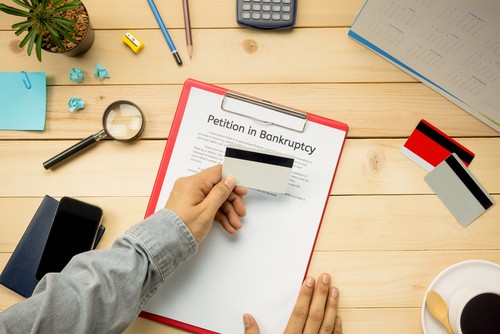There are pros and cons to filing for bankruptcy. Don’t do it before educating yourself!
In cases where it may be necessary to consider filing bankruptcy, it’s a very good idea to weigh the pros and cons of doing so before committing to it. There are some popular misconceptions about bankruptcy, and some not-so-well-known things about filing you should be aware of. There’s more than one bankruptcy option, and depending on which you choose you may be under a different set of constraints.
Options for filing for bankruptcy:
Chapter 13 Bankruptcy
Chapter 13 bankruptcy is a plan where the debtor is not required to sell off his or her assets to pay off creditors, but instead goes into a structured repayment plan.
- Pros – One of the main pros for chapter 13 bankruptcy is getting to keep your possessions. With the approved restructured payment plan you will also lower debt amounts.
- Cons – One of the pros can still be a con as you will still be responsible of paying back the debts. Another con many are not aware of is that paying off the account does not remove the negative mark from your reports. Collections will be updated to paid collections, and additionally a public record will also be filed with your credit report adding an additional negative mark.
Chapter 7 Bankruptcy
Chapter Seven bankruptcy happens much faster-as quickly as three to six months from the time of filing to the time you get debt relief, depending on circumstances and other factors.
- Pros – A pro of Chapter 7 is that it can wipe out “dischargeable debt” rather than requiring that debt to be repaid.
- Cons – There are some forms of debt that cannot be discharged, and there will be a bankruptcy sale to help pay for some of your debt. The non-dischargeable debt and bankruptcy sale are considered cons by most. Just like in chapter 13 bankruptcy, negative marks are not removed. Accounts are simply updated to show paid, and you additionally gain the negative mark of the public record.
Can you get credit after a bankruptcy?
Filing for bankruptcy can help a debtor get back on the road to building good credit, but it is not the answer for everyone. It is important to note that the public record itself can report on your credit for 7-10 years. Those 7-10 years are viewed as a con by most, but you may not be required to wait out seven full years before being able to get credit once more. Much depends on how you work to rebuild your credit in the wake of the bankruptcy discharge.
What does that mean? Potential borrowers with a Chapter 7 or 13 bankruptcy must wait out a mandatory “seasoning period” following the discharge (not the filing date). This period can be as long as three years depending on the lender or creditor. In that span of time, it’s possible to rebuild credit to become a more acceptable credit risk to a participating lender.
Don’t file for bankruptcy before consulting an expert.
Before deciding on this course of action, it’s always a good idea to consult with a credit counselor or credit expert. MSI Credit Solutions leverages your consumer rights and works on your behalf to remove questionable negative items from your credit report which results in an increase to your credit scores.
Call MSI Credit Solutions today at 866-217-9841 and receive a FREE consultation.
 MSI Credit Solutions provides superior credit restoration and comprehensive consulting services that are reliable and affordable. Call today for your free credit repair consultation! Contact us at (866) 217-9841.
MSI Credit Solutions provides superior credit restoration and comprehensive consulting services that are reliable and affordable. Call today for your free credit repair consultation! Contact us at (866) 217-9841.
*The information in this article has been provided strictly for educational purposes.





